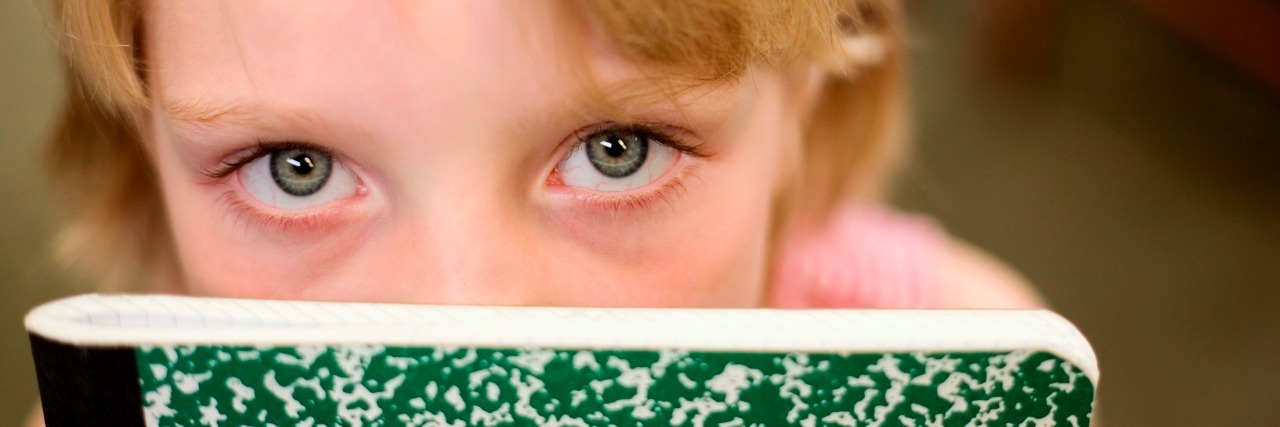Sitting in class in fourth grade English. Being called on to read aloud from the book we are studying. I panic. Heart racing, vision blurred. I can’t catch my breath to form the words. I feel the eyes of my classmates and teacher bearing down on me, making the panic worse. The teacher calls on someone else. To everyone else, it is like nothing had even happened. My whole world shifts. I’m scared.
Don’t be scared. It’s called a panic attack. Slow heart-focused breathing. This happens to many other people. You are not alone in feeling this way.
Eight grade science class. It’s my turn to give my oral report in front of the class. The panic starts… heart racing, sweaty palms, vision blurred, stuttering words. I step into the hallway to try and calm myself. Afterwards my teacher hands me my grade slip, and written across the paper in big red letters reads, “Don’t be so nervous!” I feel a wave of shame wash over me, wishing I could be normal and composed like everyone else. I feel like a failure.
You have not failed. Do not feel shameful. What she saw as stage fright, was you facing your mental illness head on. You were brave and fought through your anxiety.
I’m asked to skip recess with the other kids to get extra help with my speech and reading. The problem is, that isn’t problem. I can’t explain my feelings or what I have been experiencing. No one seems to understand. Am I the only kid having these attacks? I fake sick to avoid situations in school that trigger them. I feel alone.
What you’re feeling are called panic attacks and generalized anxiety disorder (GAD). There is help out there. You will find the right treatment for you. Someone will explain to you what GAD and panic attacks are and that you’re not alone in this fight.
Through high school, college and present day, I would struggle with panic attacks and GAD. I wish I could help my younger self understand what I was feeling back then was something many others also battle on a daily basis. No one seemed to talk about mental health, especially to children. I broke my hand one year and my classmates signed my cast and asked how it happened. When you say you struggle with a mental illness, others aren’t so eager to talk to you about it.
It’s important for younger generations to be taught about mental health as well, to know what their resources are and find peers to talk to. My goal is to help alongside others to normalize the conversation of mental illnesses and end the stigma behind it. Growing up, I concealed my struggles so I could come across as a perfect student, a perfect athlete and daughter. Now, I feel strongly in sharing my story in hopes that it will reach even one person so they don’t feel alone.
We want to hear your story. Become a Mighty contributor here.
Thinkstock photo by Creatas

